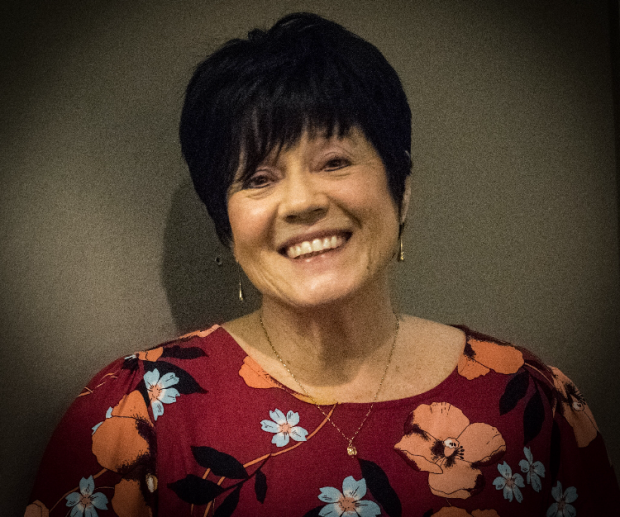Gill Phillips worked as a teacher with pupils with special needs for more than 40 years, finishing her career with 20 years as head teacher at a pupil referral unit – and she loved every minute of it. More than 30 years after the launch of the national breast screening programme in England, Gill tells her story of surviving cancer that was first detected at a ‘routine’ screening appointment.

I’ve always gone for every breast screening appointment I’ve been offered. It seemed the sensible thing to do – ‘a bit of insurance’, I thought, to make sure I did not have breast cancer, so my 2010 mammogram was routine.
The shock I felt when I was recalled following my visit to the mobile screening van was world-shattering. Foolishly, I’d never considered for a moment that screening would actually find something. I was convinced it was a mistake. I was so sure that I went along by myself and didn’t even tell my husband I was going (no need to worry him unnecessarily).
I was astounded when the consultant said the mammogram had found a small lump which was very deep in my left breast and that I would need an ultrasound. Even as I sat in a gown waiting to be called by the radiologist I doubted the lump existed, but when I needed a biopsy the truth began to shine a very faint light in my mind.
I took my husband with me for the biopsy result and we both nearly fell through the floor when the consultant said there was cancer present but that it was treatable, and that I would need a lumpectomy and hormone-blocking medication.
I had recently supported a friend through her breast cancer journey and the only question I had to ask was: “How soon?”. The consultant, bless her, touched her forehead and said, “My husband will kill me” (to herself), then (to me) said she could do the operation on “Monday or in one month”. She was going on holiday and was prepared to put me on to her last day of surgery. I grabbed the offer with both hands.
And that’s where everything becomes blurred. I remember telling my parents as though I was telling them I was going to have a haircut. I remember packing my bag and then little bits like:
- not being ready when the theatre team came to fetch me and tearing my clothes off
- the consultant kneeling in front of me to draw where she was going to cut
- lying in the hospital bed and being horrified to see such bad bruising (it was the location dye!)
- radiotherapy wiping me out and sleeping at every opportunity
Slow and steady recovery
After the operation, we fetched my son from university and I slept in the car there, then in his room while he and my husband loaded the car, and then all the way back home. I only managed to stay awake to eat lunch.
My recovery was slow and steady but I went back to work feeling very happy to be getting things back to normal. My deputy sent me home when my eyes drooped and afterwards I took a cushion and took quick 10-minute catnaps.
I was diagnosed in May and by November I could last a day from getting up to going to bed. This was when I realised that my screening had been a success – it found cancer very early, it was treated quickly and I had the rest of my life to enjoy. I feel so lucky when I imagine how big that tumour would have had to become before I would have noticed a lump.
I’m now chair of our local Breast Cancer Support and Action Group and try to spread the message about screening and earlier diagnosis every chance I get.
PHE Screening blog
PHE Screening blog articles provide up to date news from all NHS screening programmes. You can register to receive updates direct to your inbox, so there’s no need to keep checking for new blog articles.
2 comments
Comment by Jan Kellond posted on
Gill - how wonderful of Richard to send this in!
It is amazing what you do for others by managing the Wolverhampton Breast Care Support Group, raising money for lots of charities including Tab’s Kitchen, living your life to the full.
I am so proud to be your friend x x x
Comment by Lizzy Daw posted on
A heartening story! Best wishes to Gill and the team who detected and treated the tumour.
It is so easy to put off screening, but such a potentially life-saving procedure is so important.
No matter which screening service it is, it is vital to remind patients of its value.